Scanning the horizon with FalconViz
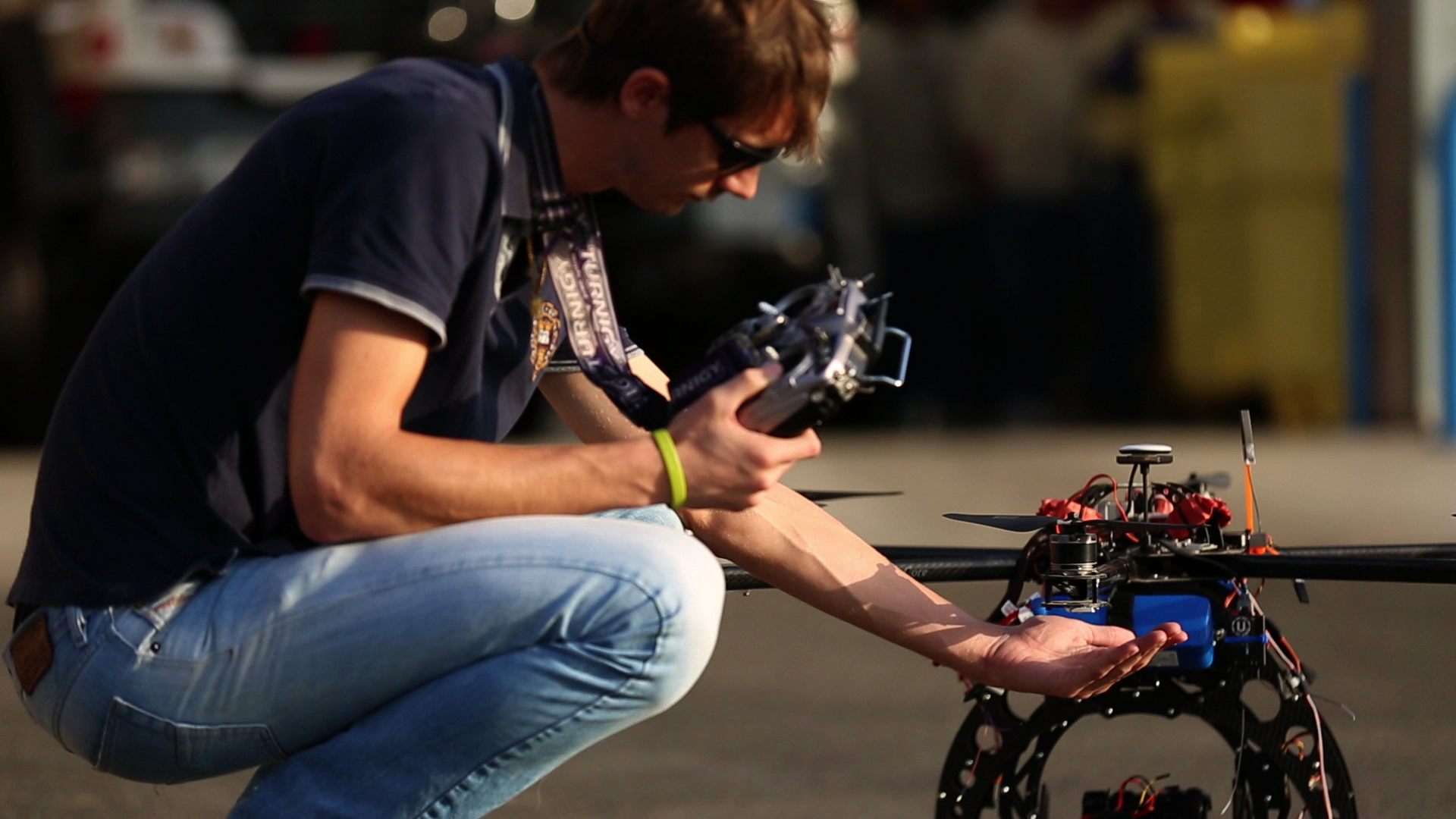
KAUST alumnus Luca Passone (Ph.D. '18, M.S. '11) combined his two hobbies—drones and photography—with the talents of other researchers on campus to co-create 3D surveying and mapping startup FalconViz. File photo.
-By David Murphy, KAUST News
KAUST alumnus Luca Passone (Ph.D. '18, M.S. '11) is part traditional researcher and part horizon-scanning entrepreneur. As the chief technology officer and a co-founder of FalconViz, one of the University's homegrown startups, Passone and his colleagues conduct 3D surveying and mapping using unmanned aerial systems (UAS) with autonomous integration of planes, copters and 3D software solutions. The startup—which was established in 2015 by Passone and co-founders Anas Dahlawi, Neil Smith and Mohamed Shalaby—is a leading example of the state-of-art technology and ideas originating from the University.

A FalconViz drone sits on the ground before deployment at a surveying site. Image courtesy of FalconViz.
From an academic journey and hobby to a career
Passone joined KAUST in 2009 as a founding class member to pursue his goal of working with supercomputers. During his nine-year academic journey at the University, he sought to understand the physics behind supercomputers; he digitally simulated earthquakes in a quest to predict ground motions caused from different types of rupture patterns; and most recently, he joined forces with researchers from the KAUST Visual Computing Center to take their work out of the lab and into real-world situations.
At present, Passone and his FalconViz colleagues offer a wealth of services to companies and institutions in the Kingdom and beyond, including topographical surveys, mining and aggregate assessments and flood modeling and analysis, among others.
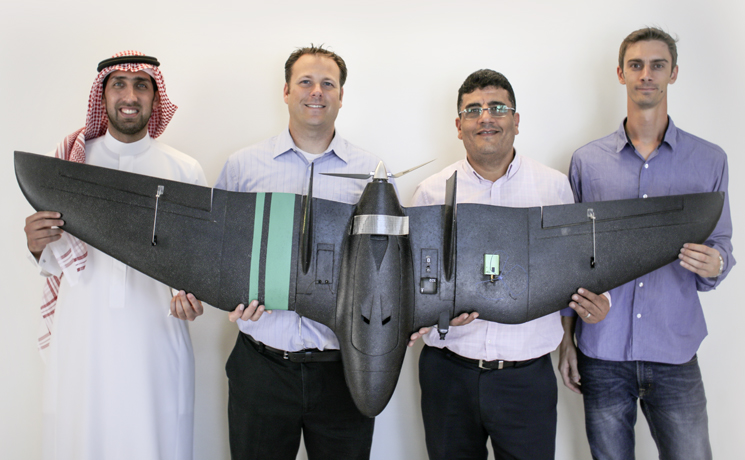
KAUST alumnus and FalconViz co-founder Luca Passone (first on right) is pictured with the startup's co-founders (from left to right) Anas Dahlawi, Neil Smith and Mohamed Shalaby. Photo courtesy of the KAUST Visual Computing Center.
How has KAUST helped you with the development of your company?
KAUST has been an incredible journey and a fantastic trampoline for our company from day one. [The University] provided the space for our first employees, [and] it has provided funding, training and support when we first started, and it continues to this day to help us with government issues. The freedom and access to talent here is outstanding. KAUST has pushed my ability to "learn how to learn."
Briefly describe the FalconViz team and your role within it.
As of the summer of 2019, the FalconViz family has 17 members plus four interns. The company is made up of three highly interconnected teams (acquisition, geomatics and processing) plus admin, sales and HR. My official title is chief technology officer, but as the company is still young, I not only have to steer our research and development and the technology side of things, but I also manage operations, go to the field on difficult acquisition campaigns and help with client relationships and processing the data.
This keeps work quite interesting and varied—plus I get to travel to some of the most remote and beautiful locations to fly drones! Sometimes I find it difficult to call it work.
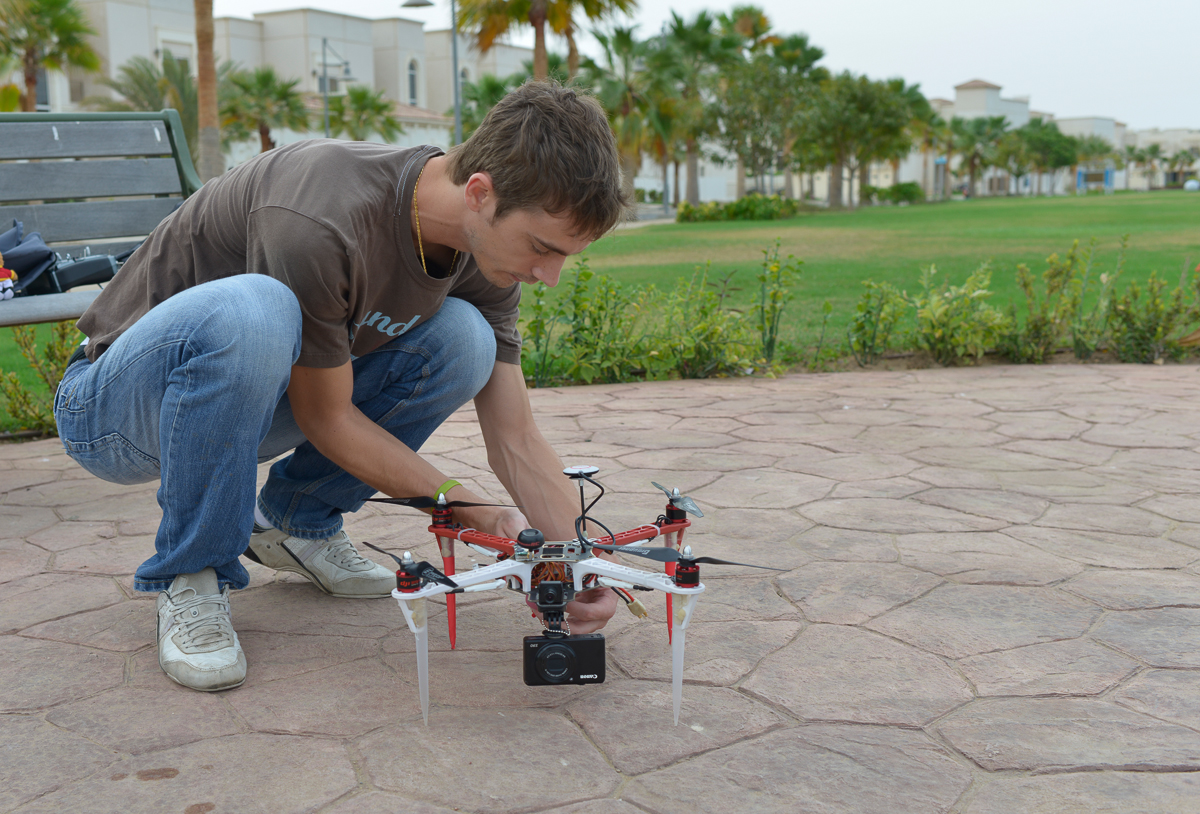
Luca Passone works on flying a drone on the KAUST campus in 2013, when he was a Ph.D. student at the University. Photo by Andrea Bachofen-Echt.
What was the inspiration behind FalconViz's inception?
The seed of the company was planted in 2013 when [co-founder] Neil Smith and I combined his expertise in archeology and photogrammetry with my two hobbies [of] drones and photography. As is often the case, a serendipitous and well-timed sequence of events drove us to turn what was a test of emerging technologies (drones) and techniques (structure from motion) into a product.
Neil and I produced a 3D model of the campus Grand Mosque and visualized it in one of the 3D caves of the KAUST Visual Computing Center. The demo was left running, and by chance, the vice mayor of Jeddah saw it during one of his visits to KAUST. He was blown away by the model and needed something just like it for [Jeddah's historic area of] Al-Balad. He was working on having the historical Jeddah city center recognized as a UNESCO World Heritage Site, but due to [its] complexity and safety concerns, he could not find anyone to carry out the documentation and inspection required by UNESCO. It was at this point that we had a future company in our hands, and with the help of [co-founder] Mohamed Shalaby, we started what would later become FalconViz.
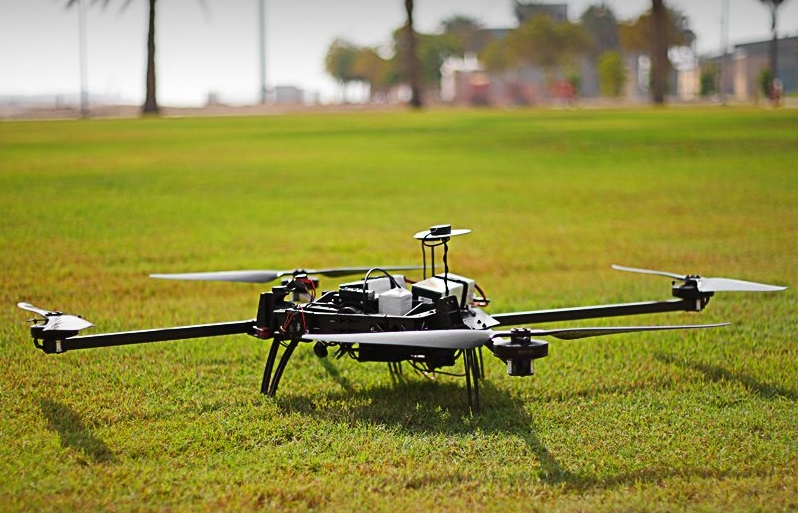
Team members from KAUST startup FalconViz use a variety of high-tech drones to carry out their 3D surveying and mapping work. File photo.
What is the main goal of FalconViz's work? What makes your product more innovative and sustainable versus similar technologies that may already be on the market?
Our tag line is "Your world, digitized." Our vision is to digitally document the world with ever-improving accuracy, speed and coverage. These are two important pillars for our company. Digitizing someone's world means presenting it in a way that makes sense for [him or her and] in a way that is familiar, useful and customized.
This means we go one [or] sometimes two steps further than our competitors, who often just use off-the-shelf products (both hardware and software) and instead create customized deliverables to satisfy the accuracy and formats that the client requires.
To digitally document the world with ever-improving accuracy, speed and coverage means constant evolution and innovation in the tools we use. From mission planning techniques to the drones we fly to how we collect and process data, we have in-house experts to continuously push the limits of what is possible. This is extremely important for us to keep our competitive advantage, reduce costs and keep our clients coming back.
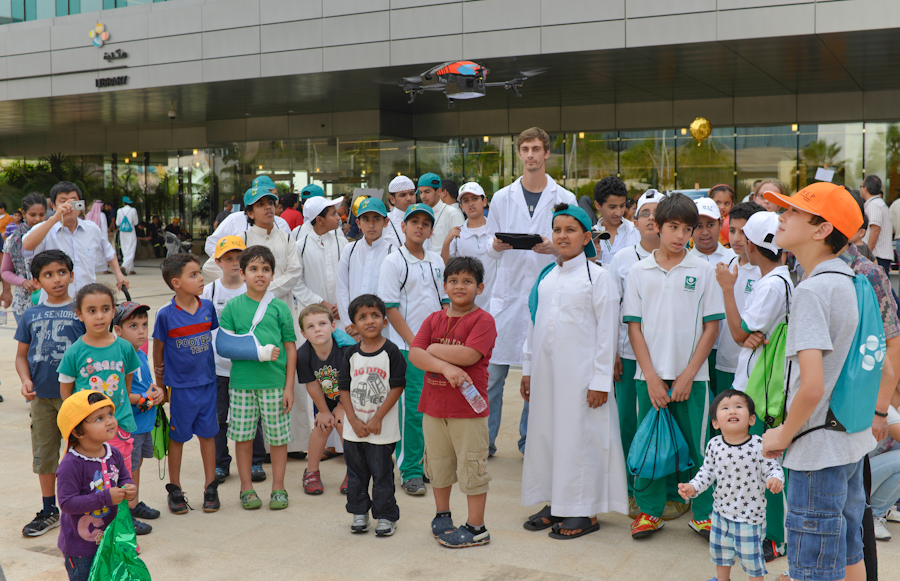
Luca Passone flies a drone for a curious group of children during the 2013 KAUST Winter Enrichment Program. Photo by Andrea Bachofen-Echt.
Describe some of the technology behind your product.
Structure from Motion (SfM) is the foundation of 80 percent of our work. [To summarize], it is a sequence of steps that enables us to estimate three-dimensional structures from two-dimensional image sequences taken with some distance from each other.
To capture the required images, we primarily use drones that fly pre-programmed missions with high-resolution cameras. At each stage, we have either customized off-the-shelf software and hardware or completely written or built our own tools when we couldn't find a ready-made solution.
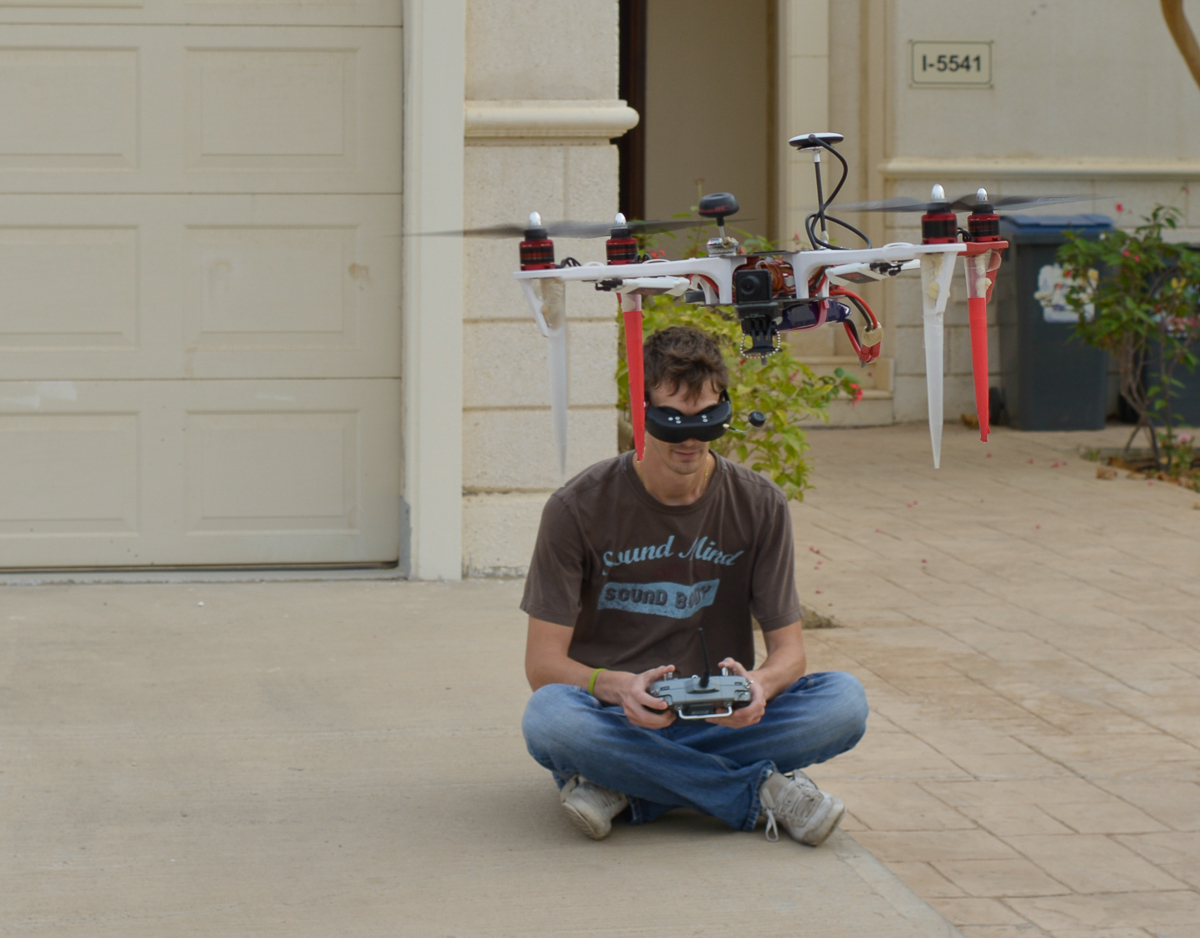
Alumnus Luca Passone noted that 'KAUST has been an incredible journey and a fantastic trampoline for our company from day one.' Photo by Andrea Bachofen-Echt.
What have you discovered over your five-year history spent scanning the historical and cultural sites of the Kingdom and elsewhere?
As I mentioned earlier, we have had the chance to visit some of the most beautiful locations around Saudi [Arabia]. With the push for tourism from the Vision 2030 initiative, we worked on some of the unique archeological and touristic sites scattered around the country.
Our technology has helped archeologists decide where to dig trenches; it has helped document and preserve for future generations minute details of the tombs in Mada'in Saleh; and [it] is helping the Discovery Channel tell the world about the beauty of the Kingdom. We are very proud to play an active role in showing the world what Saudi Arabia has to offer.
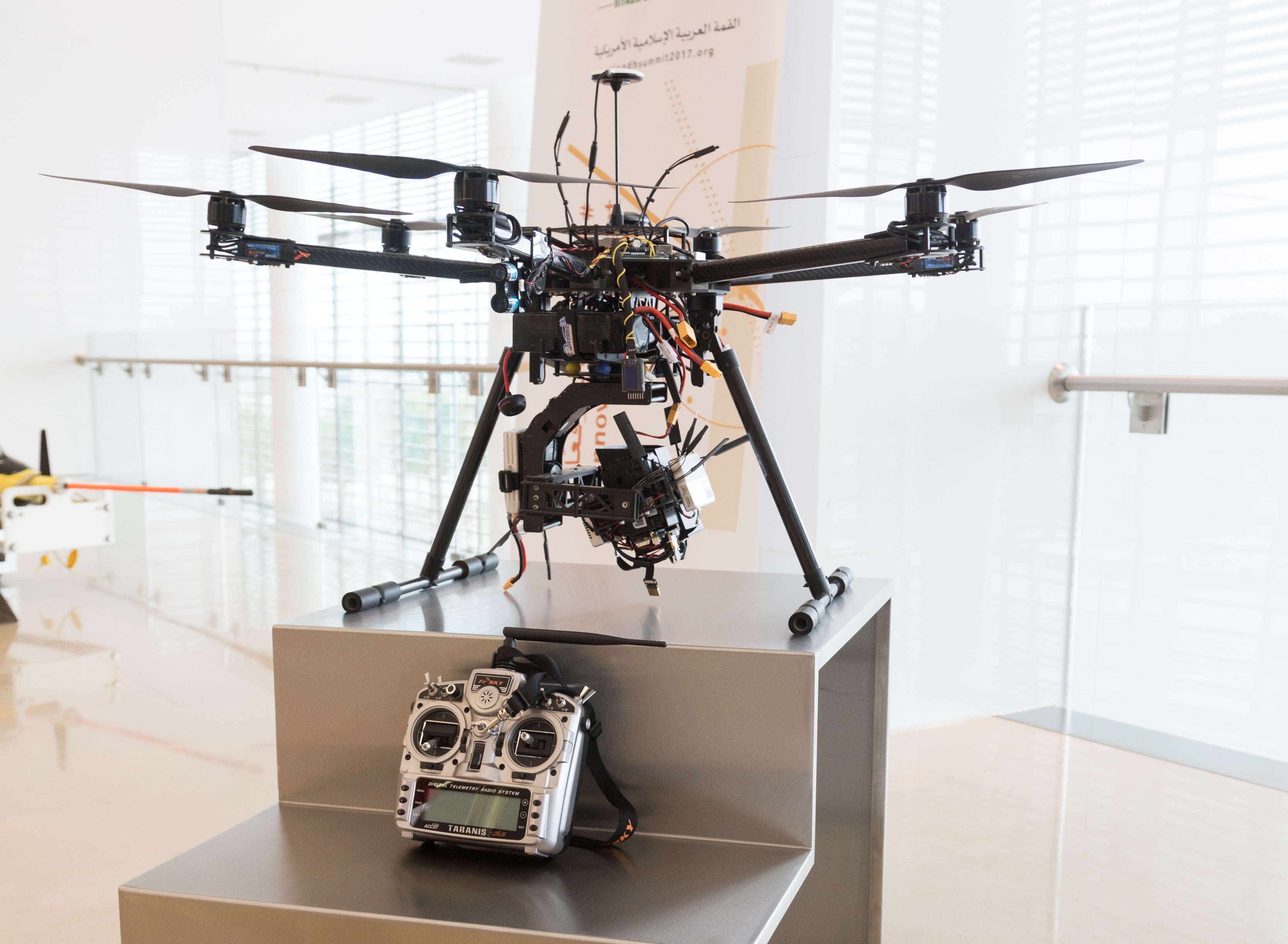
Startup FalconViz's drones and cutting-edge 3D surveying and mapping technologies have been part of many KAUST exhibitions both in the Kingdom and on the University's campus. Photo by Helmy Alsagaff.
Does it make you incredibly proud to see your company going from a basic conceptual design to its current fully functional state?
It is one of the best feelings—however, it can also be very stressful! We now have 17 employees, and knowing that our decisions affect all these people and their families can be daunting at times. Seeing the company grow has been a wonderful journey. As it develops and evolves, problems I never even envisioned arise, new challenges are brought to the table and more and more of our time is spent "managing," something [for which] I would consider myself still a "beginner."
We have still plenty of work to do, but our trajectory is very good! I am excited for what the future will bring, and I am extremely proud to be creating high-level jobs for young Saudis.
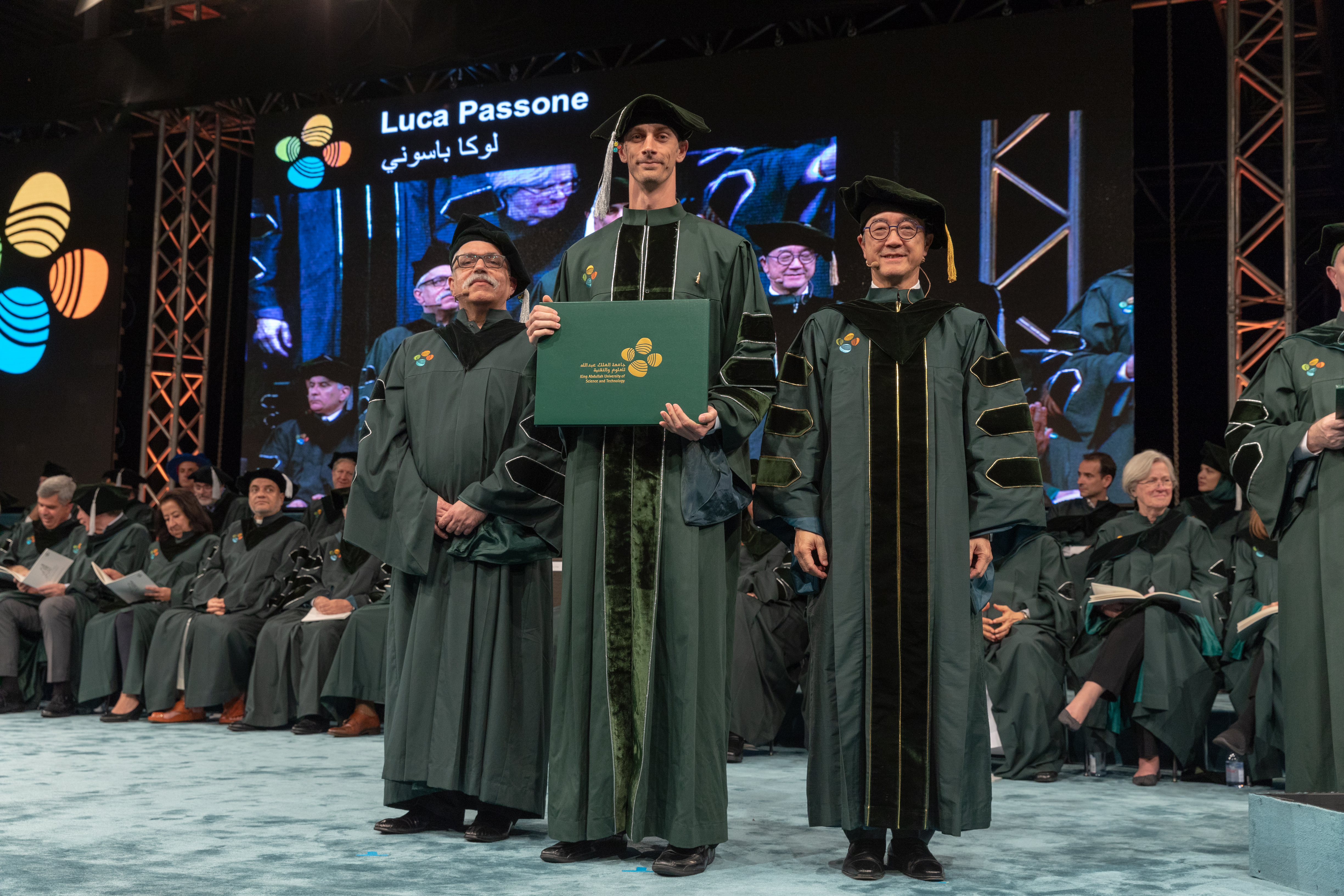
While at KAUST, alumnus Luca Passone not only co-founded startup FalconViz, but he also received his master's and Ph.D. degrees. He is pictured here with his Ph.D. diploma during Commencement 2018. Photo by Helmy Alsagaff.
What does the future hold for FalconViz and 3D surveying and mapping and drone design in general?
I can't say too much about [FalconViz's] roadmap, but it includes new services [that] will allow us to scale much faster without adding too many more people. Right now, our revenue is pretty much "people bound." We are moving away from this model to accelerate our revenue growth in our mid-term future. To do so, we are leveraging on all our experience in the field and in processing to create unique tools that we think our customers will love. The mapping business is continuously growing and evolving, [and] a key for the long-term future success of FalconViz is to keep evolving and providing solutions to the market needs.
Related stories:
- The sky's the limit for FalconViz
- KAUST hosts Global IT Summit
- KAUST's 3D mapping technology helps preserve a landmark
-
KAUST Startups to Watch in 2018

